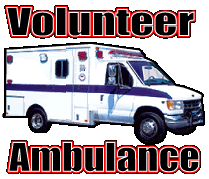
PRINCETON, N.J. — New Jersey wants to get out of the business of saving every hospital from financial ruin.
In a report made public on Thursday, a commission appointed by Gov. Jon S. Corzine recommended that the state establish guidelines for identifying hospitals in financial distress that are worth helping, and those are that are not.
Hospitals deemed essential would then be propped by state grants and loans, with what the state health commissioner, Heather Howard, described as an early-warning system.
Joel C. Cantor, the director of the Center for State Health Policy at Rutgers University, who is a member of the commission, said hospital boards should think twice about what has become a habit of “go to the governor’s office and ask for help.”
“We’re trying to send a signal that there’s no guarantee that that help will be there,” he said.
The report is not as far-reaching as one ordered by the New York State Legislature in 2006, in which a commission recommended that at least nine hospitals, including five in New York City, be closed. Indeed, the New Jersey report did not spell out which hospitals should be shuttered.
Uwe E. Reinhardt, a health care economist at Princeton and chairman of the commission, said that a specific list would probably hurt a hospital’s ability to negotiate insurance rates and damage employee morale.
But the report did not mince words, saying that a good number of New Jersey’s 78 hospitals were poorly managed and inefficient, and that a “large number of hospitals appear headed toward distress in the next few years.”
The report now goes to Mr. Corzine, and it is not clear what he will do, and when he will do it. For now, his top priority is shepherding his multibillion-dollar plan to restructure the state’s troubled finances through substantially higher toll road increases.
What is troubling about New Jersey’s hospitals, the report found, is that even though many hospitals across the country are doing well financially, those in New Jersey are not; 15 have closed in the last 10 years.
The report concluded that too many hospitals in New Jersey are bunched in the same areas, particularly in the northeast, resulting in a surplus of beds.
In addition, the report found problems with public insurance like Medicaid and the state’s Charity Care program, which, it said, reimburse hospitals well below cost. At the same time, the report noted, chronically ill elderly patients covered by Medicare see more doctors a year than in any other state in the nation.
As a result, the state has frequently been asked, at the very last minute, to help rescue an endangered hospital, often at a cost much higher than if it had intervened earlier, the report said.
If the governor follows the commission’s recommendations, the system will undergo substantial changes. For instance, if the state decides to classify hospitals as essential or nonessential, they will all be defined by certain criteria, like providing care to a vulnerable population, providing an essential service like trauma care or existing in an area not saturated by hospitals.
The cost of adopting the recommendations is not clear. Some of the measures will cost money; others will save money, Ms. Howard said. One idea, for instance, would increase the current 3 percent tax on ambulatory care and other clinics, and use the increase to finance a fund for distressed hospitals.
In a statement, the New Jersey Hospital Association commended the commission for tackling a tough subject, but said that it did not offer sufficient solutions or address options to obtain new financing.























No comments:
Post a Comment